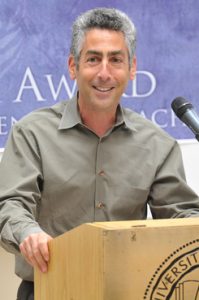Will SCOTUS Review the Central District's COVID Ban on Jury Trials? 1st Conference Is Thursday
The case is among dozens on the court's weekly conference schedule, and petitions often are discussed at several conferences before a decision on review is announced.
May 10, 2022 at 09:16 PM
7 minute read
 The Cato Institute's Jay Schweikert, left,, U.S. Court of Appeals for the Ninth Circuit Judge Daniel Collins, center, and UCLA law professor Stuart Banner, right. (Credit: Shutterstock/ALM/courtesy)
The Cato Institute's Jay Schweikert, left,, U.S. Court of Appeals for the Ninth Circuit Judge Daniel Collins, center, and UCLA law professor Stuart Banner, right. (Credit: Shutterstock/ALM/courtesy)
The U.S. Supreme Court on Thursday will consider whether to review the constitutionality of the Central District of California's 14-month ban on jury trials during the pandemic.
Bolstered by a split circuit decision on en banc review, the cert petition concerns not only new issues regarding COVID-19 restrictions but long-standing issues regarding the right to a jury trial, with a May 3 amicus brief warning that the appellate ruling "allows District Courts to utilize the ends-of-justice provision to suspend speedy trial rights indefinitely."
"Disregarding the importance of a speedy trial not only places coercive pressure on criminal defendants, whether guilty or innocent, but also contributes to the erasure of criminal jury trials from American courtrooms," according to the brief from the Cato Institute's Jay R. Schweikert and Laura A. Bondank.
The case filings cite other COVID-related Supreme Court rulings, and Schweikert told Law.com the issue is "not just about health and safety restrictions."
"It's more fundamentally about, 'Can courts do an end run around a statute that's meant to give concrete meaning to a constitutional guarantee?'" Schweikert said in a phone interview Monday.
The dissent on the en banc review from Judge Daniel Collins also represents what one of Collins' colleagues said is a big change with the appointment of so many new judges over the last few years.
Dissents "have definitely gone up" as more judges want "to express their displeasure that a case did not go en banc," Judge John B. Owens said during a March luncheon with the Federal Bar Association's Orange County chapter.
Dissenting judges are "basically sending an advertisement or a brief to the Supreme Court saying, 'Hey, Supreme Court, take a look at this,'" Owens said.
Case Among 5 Dismissals
Filed April 5 by Stuart Banner, director of UCLA's Supreme Court Clinic, the cert petition about the jury trial ban cites Collins' dissent throughout, beginning in the second paragraph. It's among dozens on the court's weekly conference schedule, and petitions often are discussed at several conferences before a decision on review is announced.
Schweikert said that the most likely desired outcome from Thursday's conference is that the court issues a call for response from the U.S. Solicitor General's Office that opens a new filing window for amicus briefs after the U.S. Department of Justice waived its initial reply.
"The fact that this is coming out of an en banc decision certainly is much more prominence than I think this issue has gotten in any other case in recent history," Schweikert said.
Collins' dissent triggered a lengthy concurrence from two of the panel judges—Mary H. Marguia and Morgan B. Christen—that indicated they aren't tied to the order regarding other criminal case dismissals, as well as a concurrence from former President Donald Trump-appointed Judge Patrick Bumatay that distinguished cases involving out-of-custody defendants such as the one before the court and cases involving defendants who are in jail awaiting trial.
The case underlying the cert petition involves U.S. District Judge Cormac Carney's dismissal of a 34-count criminal indictment against physician Jeffrey Olsen, accused of illegally prescribing addicted patients oxycodone and other drugs. Olsen was indicted in 2017 and moved to delay his trial several times, twice after the Central District halted trials in March 2020 because of COVID-19. But when prosecutors requested a delay in August 2020, Carney denied, then dismissed the case at Olsen's request two months later.
The judge, who's in the Central District's Southern Division in Santa Ana, lamented the fact that nearly every workplace in Orange County had reopened and that nearby Orange County Superior Court had been holding jury trials for months, but the Central District still wouldn't allow them.
Carney dismissed Olsen's indictment with prejudice, meaning the case couldn't be refiled, then issued similar dismissals in four other criminal cases as the trial ban persisted, all of which are under appeal and awaiting the outcome of the Olsen case. The Ninth Circuit panel that vacated the dismissal called Carney's motives "misguided," saying he was driven by his disagreement with his Central District bench colleagues over the trial ban and said he at the least should have dismissed the case without prejudice because of the lack of prosecutorial misconduct.
Collins, a 2019 Trump appointee, dissented with the support of another Trump appointee, Danielle Forrest, but he agreed with the panel opinion on a fundamental aspect of the ruling: that Carney errored by dismissing Olsen's indictment with prejudice instead of without.
The U.S Attorney's Office pointed out in its opposition to Olsen's request that the Ninth Circuit stay the trial court mandate pending the Supreme Court petition, writing, "there is no fair prospect that five Supreme Court justices will conclude otherwise."
"Not a single other judge in the nation has dismissed an indictment with prejudice due to the suspension of trials," according to the brief by Bram Alden, chief of the U.S. Attorney's Office Criminal Appeals Section in Los Angeles. "There is thus no precedent supporting defendant's claim, much less a circuit split warranting Supreme Court review."
Still, the panel—visiting Chief U.S. District Judge Barbara Lynn from the Northern District of Texas joined Marguia and Christen—granted Olsen's stay request in January, meaning that Carney can't take Olsen's case again until the Supreme Court petition is adjudicated.
Burden of Proof Debate
Banner's 42-page petition argues that Carney needed to dismiss with prejudice so prosecutors wouldn't simply refile the case.
"Dismissal with prejudice was the only way to obtain meaningful appellate review of this important question, so the District Court did not abuse its discretion in choosing this remedy," according to the petition.
 Professor Stuart Banner of UCLA School of Law.
Professor Stuart Banner of UCLA School of Law. It calls Collins' dissent "exactly right" and warns that the panel's ruling "twists the text of the Speedy Trial Act beyond recognition" by allowing courts to render trials "impossible" simply by prohibiting them. It exasperates or creates circuit splits, including over which party bears the burden of proof regarding an exclusion of time under the Speedy Trial Act, which Congress enacted in 1974 to enforce the Sixth Amendment.
"Every other circuit to address the question places the burden on the party seeking the continuance—here, the government—but the Ninth Circuit placed the burden on the defendant," Banner wrote, adding, "Rarely have so many errors been packed into a single opinion."
The petition went on to describe the Central District's convening of grand juries during the trial ban as making the problem "even more Kafkaesque"—a reference to the novelist Franz Kafka—and said it "required the jailing of ever more defendants as the indictments mounted."
"For nearly a year, criminal justice in the Central District was an assembly line with an entrance but no exit," Banner wrote.
Banner cited recent Supreme Court rulings that overturned COVID restrictions related to workplace safety, evictions and in-person worship. That includes South Bay United Pentecostal Church v. Newsom, which overturned a Ninth Circuit ruling in which Collins dissented. Collins' dissent in the jury trial ruling quoted that dissent, as well as the Supreme Court's vacancy of another Ninth Circuit ruling on religious gather restrictions, Tandon v. Newsom.
Schweikert said the Cato Institute took interest in the case because of its importance to its strategic priorities regarding "the near disappearance of the criminal jury trial" and erosion of the Speedy Trial Act through unlimited continuances.
"If this decision is allowed to stand, it really will exasperate what is really a serious crisis," Schweikert told Law.com.
This content has been archived. It is available through our partners, LexisNexis® and Bloomberg Law.
To view this content, please continue to their sites.
Not a Lexis Subscriber?
Subscribe Now
Not a Bloomberg Law Subscriber?
Subscribe Now
NOT FOR REPRINT
© 2025 ALM Global, LLC, All Rights Reserved. Request academic re-use from www.copyright.com. All other uses, submit a request to [email protected]. For more information visit Asset & Logo Licensing.
You Might Like
View All
'My Lyft Ride Has Come to an End': GC-Turned-President Kristin Sverchek Helped Build Ride-Hailing Pioneer

Virus Insurance Policy Doesn't Cover Restaurant's COVID Closure, California Supreme Court Says
3 minute read
Law Firms Mentioned
Trending Stories
- 1Decision of the Day: Court Holds Accident with Post Driver Was 'Bizarre Occurrence,' Dismisses Action Brought Under Labor Law §240
- 2Judge Recommends Disbarment for Attorney Who Plotted to Hack Judge's Email, Phone
- 3Two Wilkinson Stekloff Associates Among Victims of DC Plane Crash
- 4Two More Victims Alleged in New Sean Combs Sex Trafficking Indictment
- 5Jackson Lewis Leaders Discuss Firm's Innovation Efforts, From Prompt-a-Thons to Gen AI Pilots
Who Got The Work
J. Brugh Lower of Gibbons has entered an appearance for industrial equipment supplier Devco Corporation in a pending trademark infringement lawsuit. The suit, accusing the defendant of selling knock-off Graco products, was filed Dec. 18 in New Jersey District Court by Rivkin Radler on behalf of Graco Inc. and Graco Minnesota. The case, assigned to U.S. District Judge Zahid N. Quraishi, is 3:24-cv-11294, Graco Inc. et al v. Devco Corporation.
Who Got The Work
Rebecca Maller-Stein and Kent A. Yalowitz of Arnold & Porter Kaye Scholer have entered their appearances for Hanaco Venture Capital and its executives, Lior Prosor and David Frankel, in a pending securities lawsuit. The action, filed on Dec. 24 in New York Southern District Court by Zell, Aron & Co. on behalf of Goldeneye Advisors, accuses the defendants of negligently and fraudulently managing the plaintiff's $1 million investment. The case, assigned to U.S. District Judge Vernon S. Broderick, is 1:24-cv-09918, Goldeneye Advisors, LLC v. Hanaco Venture Capital, Ltd. et al.
Who Got The Work
Attorneys from A&O Shearman has stepped in as defense counsel for Toronto-Dominion Bank and other defendants in a pending securities class action. The suit, filed Dec. 11 in New York Southern District Court by Bleichmar Fonti & Auld, accuses the defendants of concealing the bank's 'pervasive' deficiencies in regards to its compliance with the Bank Secrecy Act and the quality of its anti-money laundering controls. The case, assigned to U.S. District Judge Arun Subramanian, is 1:24-cv-09445, Gonzalez v. The Toronto-Dominion Bank et al.
Who Got The Work
Crown Castle International, a Pennsylvania company providing shared communications infrastructure, has turned to Luke D. Wolf of Gordon Rees Scully Mansukhani to fend off a pending breach-of-contract lawsuit. The court action, filed Nov. 25 in Michigan Eastern District Court by Hooper Hathaway PC on behalf of The Town Residences LLC, accuses Crown Castle of failing to transfer approximately $30,000 in utility payments from T-Mobile in breach of a roof-top lease and assignment agreement. The case, assigned to U.S. District Judge Susan K. Declercq, is 2:24-cv-13131, The Town Residences LLC v. T-Mobile US, Inc. et al.
Who Got The Work
Wilfred P. Coronato and Daniel M. Schwartz of McCarter & English have stepped in as defense counsel to Electrolux Home Products Inc. in a pending product liability lawsuit. The court action, filed Nov. 26 in New York Eastern District Court by Poulos Lopiccolo PC and Nagel Rice LLP on behalf of David Stern, alleges that the defendant's refrigerators’ drawers and shelving repeatedly break and fall apart within months after purchase. The case, assigned to U.S. District Judge Joan M. Azrack, is 2:24-cv-08204, Stern v. Electrolux Home Products, Inc.
Featured Firms
Law Offices of Gary Martin Hays & Associates, P.C.
(470) 294-1674
Law Offices of Mark E. Salomone
(857) 444-6468
Smith & Hassler
(713) 739-1250







